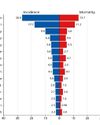
With this new method of tracking lake water storage trends and the reasons behind them, scientists can give water managers and communities insight into how to better protect critical sources of water and important regional ecosystems.
This is the first comprehensive assessment of trends and drivers of global lake water storage variability based on an array of satellites and models. Author has motivated to do the research by the environmental crises in some of Earth's largest water bodies, such as the drying of the Aral Sea between Kazakhstan and Uzbekistan.
Authors from the University of Colorado Boulder, Kansas State University, France, and Saudi Arabia created a technique to measure changes in water levels in nearly 2,000 of the world's biggest lakes and reservoirs, which represent 95 percent of the total lake water storage on Earth. The team combined three decades of observations from an array of satellites with models to quantify and attribute trends in lake storage globally.
Esta historia es de la edición May-June 2023 de Scientific India.
Comience su prueba gratuita de Magzter GOLD de 7 días para acceder a miles de historias premium seleccionadas y a más de 9,000 revistas y periódicos.
Ya eres suscriptor ? Conectar
Esta historia es de la edición May-June 2023 de Scientific India.
Comience su prueba gratuita de Magzter GOLD de 7 días para acceder a miles de historias premium seleccionadas y a más de 9,000 revistas y periódicos.
Ya eres suscriptor? Conectar

Building world's 1st pyramid
In a preprint study published this summer, researchers proposed that ancient Egyptians built the world's first pyramid the 4,700-year-old Step Pyramid of Djoser, which sits on Egypt's Saqqara plateau using a \"modern hydraulic system\" powered by a long-gone branch of the Nile River.

Climate change arms the world, ovarian cancer pulls the trigger.It's time we disarm them both
Climate change, driven by human activities, leads to environmental changes such as rising temperatures, altered weather patterns, and increased pollution.

Climate Change Added 18 mph to Hurricane Wind Speeds over Past 5 Years
High ocean temperatures caused by global warming boosted maximum intensities for most storms between 2019 and 2023, as well as for every 2024 hurricane.

How Indian Vulture Decline Led to 500,000 Deaths in 5 Years
Once a common sight across India, vultures were abundant scavengers, often seen circling landfills in search of carcasses.

Understanding Monkeypox: Insights and Implications
Monkeypox, a viral zoonotic disease, has gained significant attention in recent years due to its re-emergence and sporadic outbreaks globally.

AI predicts that most of the world will see temperatures rise to 3°C much faster than previously expected
Three leading climate scientists have combined insights from 10 global climate models and, with the help of artificial intelligence (AI), conclude that regional warming thresholds are likely to be reached faster than previously estimated.

Infrared Radiation: A New Player In Mosquito Host-Seeking
The sound of mosquitoes is all around us when the sun sets and the air gets warm and sweltering.

Fish Oil May Benefit to Cure Alzheimer's, disorder: new findings
The benefits of fish and fish oil consumption are well-known in medical science as fish is considered a precious food resource that provides sufficient nutrition to humans.

A new class of antivirals could help prevent future pandemics
The arrival of Paxlovid in December 2021 marked another turning point in the COVID-19 pandemic an effective antiviral that has since successfully treated millions.

Turning carbon emissions into methane fuel
Chemists have developed a novel way to capture and convert carbon dioxide into methane, suggesting that future gas emissions could be converted into an alternative fuel using electricity from renewable sources. Carbon dioxide (CO2) is a greenhouse gas that accounts for a large part of Earth's warming climate, and is produced by power plants, factories and various forms of transportation.